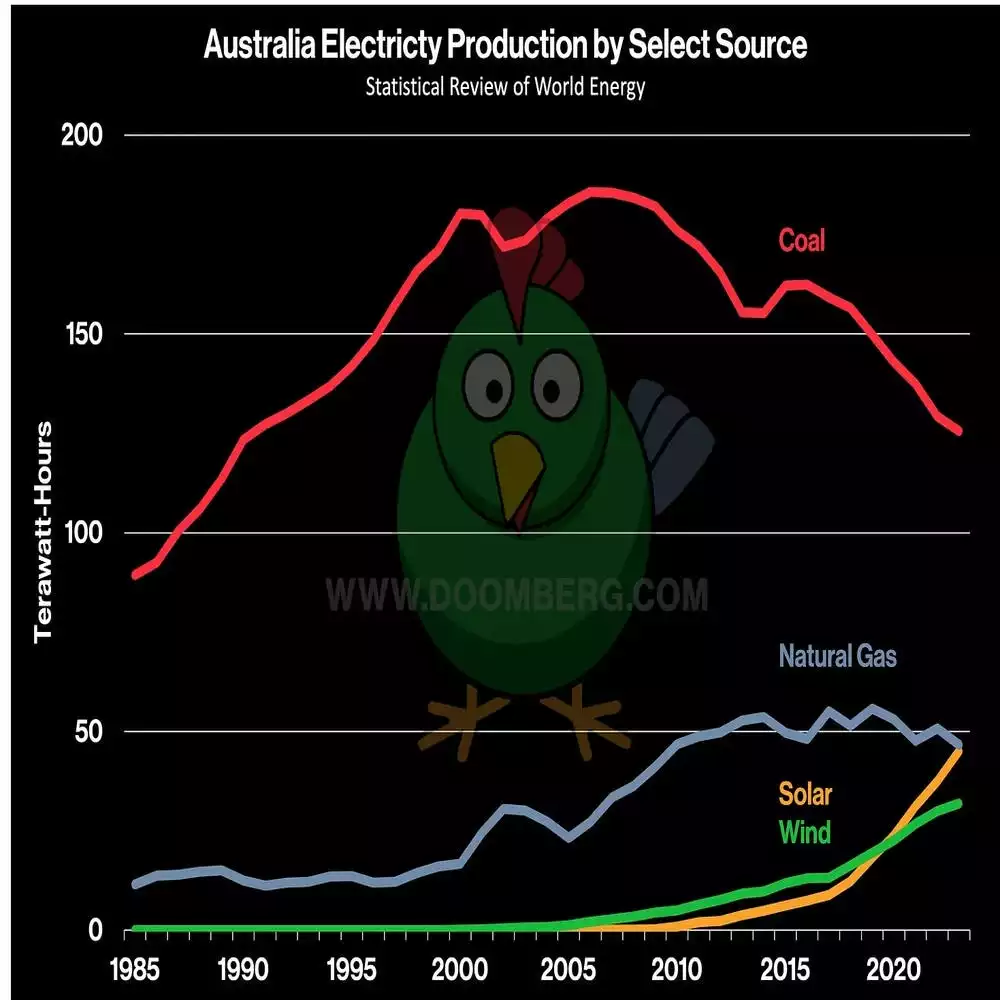Energy Sabotage
News
|
Posted 11/12/2024
|
1468
This opinion piece was written by Alex Hutchinson for Ainslie Bullion.
Matt Barrie, CEO of Freelancer (@matt_barrie on Twitter), recently delivered a speech addressing the challenges facing the Australian economy and the impact of policy decisions. He highlighted the risks to Australia's energy security, attributing them to actions by successive governments. According to Barrie, these policies are undermining industry and manufacturing. He described high migration rates as a tactic to maintain GDP growth despite economic decline, but stressed that energy security must be prioritised to set Australia on a sustainable economic path. The full speech, titled "Flat Out Like a Nation Sinking", was delivered at a Northern Beaches Liberal Party event, where it resonated with attendees dissatisfied with current policy directions. The speech is available here: Matt Barrie on X.
The World’s Energy Blunder
Concerns about global warming and its potential tipping points have long been recognised. The ocean’s ability to act as a thermal regulator is diminishing as temperatures rise, which may lead to accelerated climate changes. The world, however, faces a critical energy challenge: phasing out fossil fuels without causing severe economic disruptions. Attempts to accelerate this transition without proper planning and technology, as observed in Australia, the UK, and Germany, have had significant economic consequences.
Germany, once Europe’s manufacturing powerhouse, faced challenges after phasing out nuclear energy in the 2010s, driven by anti-nuclear sentiment. The country relied on gas as a bridge to renewables, but the war in Ukraine disrupted this strategy, causing energy costs to spike. Electricity prices soared, industrial output hit a 10-year low, and companies like BASF relocated operations abroad, including a $10 billion facility in China.
Australian Coal
Coal remains Australia's largest export. Despite this, domestic energy policies have moved away from coal for electricity generation, resulting in reliance on less stable renewable energy sources. Meanwhile, exported coal continues to support other nations' industries, placing Australian businesses at a competitive disadvantage.
Uranium
Discussions about nuclear energy in Australia are gaining traction, with recent proposals from the Liberal Party advocating for nuclear power plants. Nuclear energy provides reliable and low-emission electricity comparable to gas and coal. While other countries, including Bangladesh, are advancing nuclear energy projects, Australia—holding 31% of the world’s uranium reserves—remains the only G20 nation not utilising nuclear power.
Gas
Australia is the second-largest LNG exporter globally, yet domestic gas prices remain among the highest worldwide, capped at $12.50/GJ. By contrast, countries importing Australian gas, such as Japan, pay as little as $2/GJ. A significant proportion of this gas is resold internationally. Meanwhile, warnings of domestic gas shortages highlight the challenges of balancing export commitments with local energy needs.
Green Energy Superpower
Australia aspires to become a renewable energy superpower, with projects like Suncable receiving substantial government subsidies. While the University of New South Wales leads globally in solar panel innovation, much of this expertise is exported, with solar panels imported from overseas.
Wind energy faces similar challenges. The closure of Keppel Prince, Australia’s last wind turbine manufacturer, underscores the impact of cheaper imports. Annual subsidies of $600,000 to $900,000 per wind turbine have added $40 billion to electricity sector costs, yet 38% of Australian wind farms operate unprofitably.
The Mathematics of Australian Renewables
Australia aims for renewables to supply 75% of its energy needs. However, wind power operates 37% of the time, and solar at 50%, resulting in an effective combined capacity of 60%—even with perfect energy storage. This leaves a significant gap to meet the 75% target, raising questions about the feasibility of current plans.

Power Down Blunder - Doomberg
Stop Blundering, Start Acting
Engineer Robert Parker, founder of Nuclear for Climate Change, provides insights into Australia’s energy challenges. In a speech for Engineers Australia, Parker argued that reliance on renewables alone exacerbates energy issues. He advocates for nuclear energy as a solution for reliable, low-emission electricity.
To phase out coal, Australia faces two viable options: investing in nuclear power or boosting domestic gas generation while tightening export controls. Without decisive action, rising energy costs will continue to impact living standards, making Australia’s cost of living one of the fastest growing among G20 nations.
Watch the Ainslie Insights video discussion of this article here: https://www.youtube.com/watch?v=zGLizRDOOig